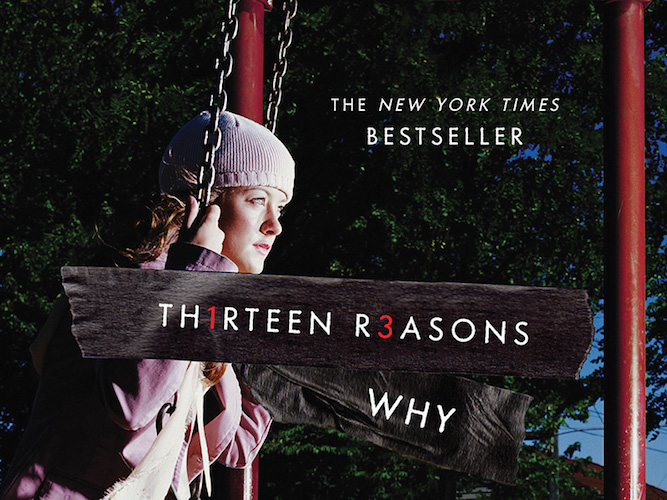What makes one award-winning Young Adult novel utterly compelling? Its subject matter: teenage suicide.
Last week, on the recommendation of a teenage friend, I read Thirteen Reasons Why, by Jay Asher. I haven’t read a teenage novel since I was . . . a teenager, but the premise alone on this one got me:
Clay Jensen returns home from school to find a strange package with his name on it lying on his porch. Inside he discovers several cassette tapes recorded by Hannah Baker—his classmate and crush—who committed suicide two weeks earlier. Hannah’s voice tells him that there are 13 reasons why she decided to end her life. Clay is one of them. If he listens, he’ll find out why . . .
Asher masterfully brocades 13 stories of betrayal, disappointment and tragic despair into a thriller-paced suspense novel of eerie proportions.
In essence it’s a love letter to a young life that couldn’t take any more. And a sobering wake-up call to the reality of teenage suicide in youth culture today.
According to The Jason Foundation:
- Suicide is the second leading cause of death for ages 10-24. (2010 CDC WISQARS)
- Suicide is the third leading cause of death for college-age youth and ages 12-18. (2010 CDC WISQARS)
- More teenagers and young adults die from suicide than from cancer, heart disease, AIDS, birth defects, stroke, pneumonia, influenza, and chronic lung disease, combined.
- Each day in the U.S. there are an average of over 5,400 attempts by young people in grades 7-12.
- Four out of five teens who attempt suicide have given clear warning signs.
And the irony here, where the novel is concerned, is that Hannah Baker’s friends learn of these warning signs in their Peer Communications class. But then, what’s another dull class when it can be relegated to the twilight zone of information overload, right?
Wrong.
Hannah Baker’s tapes reveal a young life marred by vicious rumors (and their unintended or unforeseen repercussions); sleazy voyeurism; manipulative ingratiation; sexual harassment; deep emotional insecurity; and an unrecognized quest to simply be known, loved, and accepted for the sensitive soul that she is.
We all recall—even if spottily—our teenage high school years. The visceral, hormonal quest to connect. The sometimes treacherous search for spiritual, moral and sexual identity. And the searing angst when our tenuous world caves under the burden of repetitive rejection and mischaracterization.
In Hannah Baker’s words:
“Like driving along a bumpy road and losing control of the steering wheel, tossing you—just a tad—off the road. The wheels kick up some dirt, but you’re able to pull it back. Yet no matter how tightly you grip the wheel, no matter how hard you try to drive straight, something keeps jerking you to the side. You have so little control over anything anymore. And at some point, the struggle becomes too much—too tiring—and you consider letting go. Allowing tragedy . . . or whatever . . . to happen.”
For the teenagers or parents of teenagers who stumble upon this article, you may consider reading this fast-paced novel. It’s a page-turner, cliff-hanger and possible life-saver all in one.
Enjoy.
Relephant:
Lessons from My Father’s Suicide.
~
Author: Gerard Murphy
Editor: Travis May
Photo: Book Cover
~
Facebook is in talks with major corporate media about pulling their content into FB, leaving other sites to wither or pay up if we want to connect with you, our readers. Want to stay connected before the curtain drops? Get our curated, quality newsletters below!


 Share on bsky
Share on bsky





Read 4 comments and reply